 W
WShutter Island is a novel by American writer Dennis Lehane, published by Harper Collins in April 2003. A film adaptation was released in February 2010. Lehane has said he sought to write a novel that would be an homage to Gothic settings, B movies, and pulp. He described the novel as a hybrid of the works of the Brontë sisters and the 1956 film Invasion of the Body Snatchers. His intent was to write the main characters in a position where they would lack 20th-century resources such as radio communications. He also structured the book to be more taut than his previous book, Mystic River.
 W
WAngelica is a princess in the epic poem Orlando innamorato by Matteo Maria Boiardo. She reappears in the saga's continuation, Orlando furioso by Ludovico Ariosto, and in various later works based on the two original Orlando pieces. The narratives are part of the Matter of France, a cycle of legendary history stories based on the adventures of Charlemagne and his paladins.
 W
WAnika the Warrior is a Bogatyr, a knight errant character of Russian fairy tales. According to a "universally known religious ballad", he was a violent and sacrilegious man who set out to destroy the Holy Sepulchre in Jerusalem, but was stopped by the half-beast Wonder. Anika challenges Wonder to a duel, but is immediately overcome because Wonder is Death in disguise. Though he begs for more time and attempts to bribe Death, no mercy is given. Proverbially, an "Anika the Warrior" is one engaged in something as hopeless as a fight against death. He appears in the folk plays Tsar Maximilian and King Herod, and is mentioned in Maxim Gorky's Childhood. Its plot is loosely based on the Byzantine epic about Digenes Akritas.
 W
WApemantus is a character in the play Timon of Athens by William Shakespeare. He is a cynical and misanthropic philosopher.
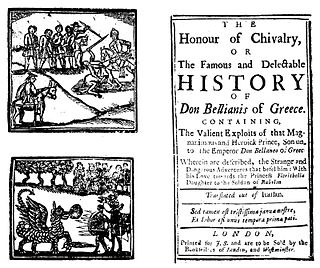 W
WBelianís of Greece is the eponymous hero of a Spanish chivalric romance novel, The honour of chivalry, following in the footsteps of the influential Amadis de Gaula. An English abridgement of this novel was published in 1673. It is best known today because it was one of the books spared during the expurgation of Don Quixote's library in Chapter 6 of Part I of Don Quixote.
 W
WAnnika Bengtzon is a fictional character in a Scandinavian noir book and film series created by the Swedish journalist, publisher and crime writer Liza Marklund. With the Annika Bengtzon series, Marklund introduced a female tabloid journalist as the protagonist, in a genre where the main characters had often been men. Current events, like political scandals or women's issues, are often intertwined with the plot, or introduced in subplots.
 W
WBevis of Hampton or Sir Bevois, was a legendary English hero and the subject of Anglo-Norman, Dutch, French, English, Venetian, and other medieval metrical romances that bear his name. The tale also exists in medieval prose, with translations to Romanian, Russian, Dutch, Irish, Welsh, Old Norse and Yiddish.
 W
W"The Haunter of the Dark" is a horror short story by American author H. P. Lovecraft, written between 5–9 November 1935 and published in the December 1936 edition of Weird Tales. It was the last written of the author's known works, and is part of the Cthulhu Mythos. The epigraph to the story is the second stanza of Lovecraft's 1917 poem "Nemesis".
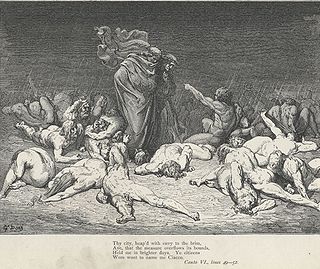 W
WCiacco is one of the characters in the Divine Comedy by Dante Alighieri that was not yet well defined by historians. This is how he presents himself to Dante when he is in Hell:
 W
WCiampolo is the accepted name of a character in Dante's Divine Comedy.
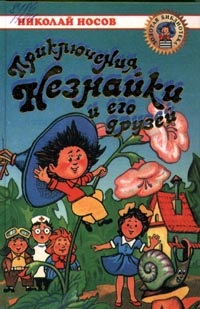 W
WDunno, or Know-Nothing or Ignoramus (Russian: Незнайка, Neznayka that is Don'tknowka ; from the Russian phrase "не знаю" is a character created by Soviet children's writer Nikolay Nosov. The idea of the character comes from the books of Palmer Cox.
 W
WThe Executioner is a monthly men's action-adventure paperback book series following the exploits of the character Mack Bolan and his wars against organized crime and international terrorism. The series has sold more than 200 million copies since its 1969 debut installment, War Against the Mafia.
 W
WLady Fujitsubo (藤壺) is a fictional character in Murasaki Shikibu's The Tale of Genji.
 W
WGirart de Roussillon, also called Girard, Gérard II, Gyrart de Vienne, and Girart de Fraite, was a Burgundian chief who became Count of Paris in 837, and embraced the cause of Lothair I against Charles the Bald. He was a son of Leuthard I, Count of Fézensac and of Paris, and his wife Grimildis.
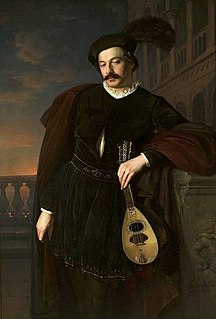 W
WDon Juan, also known as Don Giovanni (Italian), is a legendary, fictional Spanish libertine who devotes his life to seducing women. Famous versions of the story include a 17th-century play, El burlador de Sevilla y convidado de piedra by Tirso de Molina, a 1787 opera, Don Giovanni, with music by Mozart and a libretto by Lorenzo da Ponte, and a satirical, epic poem, Don Juan, by Lord Byron.
 W
WHarshabardhan and Gobardhan (Bengali: গোবর্ধন are humorous fictional characters in Bengali literature created by Shibram Chakraborty. Harshabardhan along with his younger brother Gobardhan, his wife, and the author Shibram are the subject of a number of satirical short stories. A characteristic of these stories is acerbic wit, play on words, and a characteristic goodnaturedness on the part of the characters. Harshabardhan is a successful black-marketeer dealing in timber who was born in Tezpur, Assam, migrates and lives in Ranaghat, West Bengal. Often to hide his ignorance on day-to-day matters, he comes up with outlandish explanations to impress his devoted younger brother and wife.
 W
WThe Cigarette Smoking Man is a fictional character and one of the primary antagonists of the American science fiction drama television series The X-Files. He serves as the arch-nemesis of FBI Special Agent Fox Mulder. In the show's sixth season, his name is said to be C.G.B. Spender, but Dana Scully suggests this is one of "hundreds of aliases"; the show's characters and fans continue to refer to him by variations of "the Smoking Man" because he is almost always seen chain-smoking Morley cigarettes. In the eleventh season, he reveals his full name to be Carl Gerhard Busch.
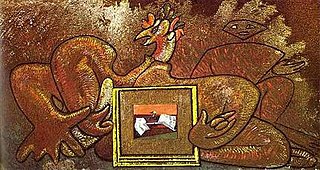 W
WLoplop, or more formally, Loplop, Father Superior of the Birds, is the name of a birdlike character that was an alter ego of the Dada-Surrealist artist Max Ernst. Ernst had a ongoing fascination with birds, which often appear in his work. Loplop functioned as a familiar animal. William Rubin wrote of Ernst "Among his more successful works of the thirties are a series begun in 1930 around the theme of his alter ego, Loplop, Superior of the Birds." Loplop is an iconic image of surrealist art, the painting Loplop Introduces Loplop (1930) appears on the front cover of the Gaëtan Picon's book Surrealist and Surrealism 1919-1939, and the drawing and collage Loplop Presents (1932) was used as the frontispiece of Patrick Waldberg's book Surrealism.
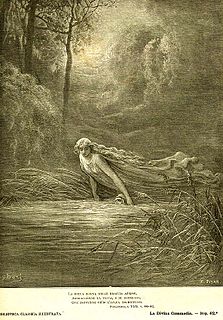 W
WMatelda, anglicized as Matilda in some translations, is a minor character in Dante Alighieri's Purgatorio, the second canticle of the Divine Comedy. She is present in the final six cantos of the canticle, but is unnamed until Canto XXXIII. While Dante makes Matelda's function as a baptizer in the Earthly Paradise clear, commentators have disagreed about what historical figure she is intended to represent, if any.
 W
WThe Monkey King, known as Sun Wukong (孫悟空/孙悟空) in Mandarin Chinese, is a legendary mythical figure best known as one of the main characters in the 16th-century Chinese novel Journey to the West (西遊記/西游记) and many later stories and adaptations. In Journey to the West, Sun Wukong is a monkey born from a stone who acquires supernatural powers through Taoist practices. After rebelling against heaven, he is imprisoned under a mountain by the Buddha. After five hundred years, he accompanies the monk Tang Sanzang (唐三藏) and two other disciples on a journey to get back Buddhist sutras from the West, where Buddha and his followers dwell.
 W
WMungojerrie and Rumpleteazer are fictional characters in T. S. Eliot's 1939 poetry book Old Possum's Book of Practical Cats. The Jellicle cat duo are mischievous petty thieves who often cause trouble for their human family. Although originally published as part of a collection, the poem "Mungojerrie and Rumpleteazer" was published as a standalone book by Faber and Faber in 2018.
 W
WNastagio degli Onesti is the protagonist in one of the one hundred short stories contained in The Decameron by Giovanni Boccaccio. The eighth story of the fifth day, it tells of the unrequited love of the nobleman Nastagio for a girl who will eventually be induced to accept Nastagio's affection by the appearance of a rejected lover and her beloved.
 W
WPăcală is a fictional character in Romanian folklore, literature and humor. An irreverent young man, seemingly a peasant, he reserves contempt and irony for the village authorities, but often plays the fool. Several derivative works codify the various versions of Păcală anecdotes. Examples include: Pâcală, by Ion Creangă; Păcală în satul lui by Ioan Slavici; Isprăvile lui Păcală by Petre Dulfu; and Întâmplările lui Păcală, part of Legende sau basmele românilor.
 W
WPetrica Kerempuh is a literary character who appears in a number of Croatian and former Yugoslav works, but is most famous for his appearance in the critically lauded The Ballads of Petrica Kerempuh by Croatian author Miroslav Krleža, who wrote in the Kajkavian dialect. Petrica Kerempuh is a prophet of the people and a cynical commentator on contemporary events.
 W
WRoger de Coverley is the name of an English country dance and a Scottish country dance. An early version was published in The Dancing Master, 9th edition (1695). The Virginia Reel is probably related to it. The name refers to a fox, and the dance's steps are reminiscent of a hunted fox going in and out of cover.
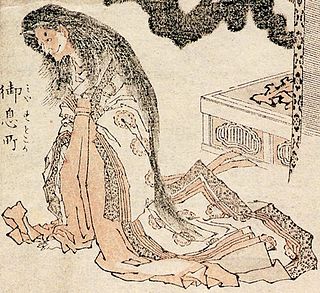 W
WLady Rokujō is a fictional character in The Tale of Genji. She is the widow of Prince Zembo and a longtime mistress of Genji. She takes the name of her residence, which was located on the Sixth Street (Rokujō) of the capital city Heian-kyō, as an alias. She has great pride, and her jealousy is so strong that subconsciously her ikiryō kills Yugao and Lady Aoi, and attacks Murasaki.
 W
WShepherd of Salisbury Plain (1795) is the name of the hero, a shepherd of the name of Saunders, in a tract written by Hannah More, characterised by homely wisdom and simple piety. It was satirised, renamed The Washerwoman of Finchley Common, by William Thackeray in his novel Vanity Fair.
 W
WTaibai Jinxing is a deity in Chinese folk religion and Taoism. He is the son of Bai Di, the White Emperor, and his name means 'Evening Star'. The Fengshen Yanyi refers to him as an aide in the entourage of the Jade Emperor. In Chinese astronomy, Taibai Jinxing is the name for Venus.
 W
WThe Old Man of Restelo, also known as The Old Man of Belem, is a fictional character introduced by the Portuguese epic poet Luís de Camões in Canto IV of his work Os Lusíadas. The Old Man of Restelo is variously interpreted as a symbol of pessimism, or as representing those who did not believe in the likely success of the then upcoming Portuguese voyages of discovery. The character appears at the embarkation of the first expedition to India (1497), giving warnings about the odyssey that was about to happen.
 W
WYang Paifeng (楊排風) is a fictional character from the Generals of the Yang Family legends. She is a maid in the Tianbo House, home to the Yang family. She learned martial arts by imitating the moves practiced by Yang family members, using a metal rod that she was supposed to use to tend the kitchen fire. It is implied that she is not related to the family by blood, and took on the surname Yang because she was an orphan.